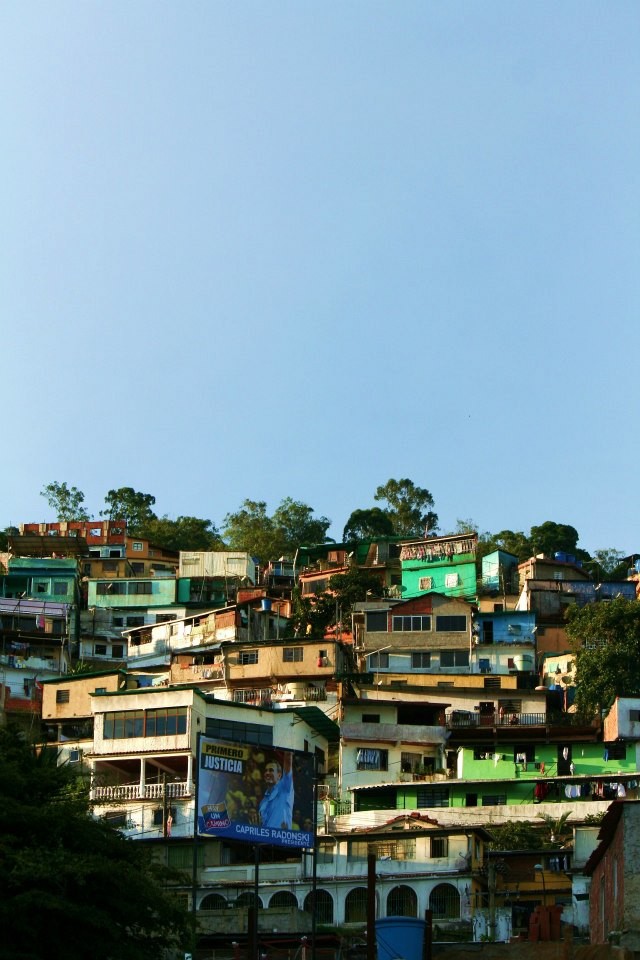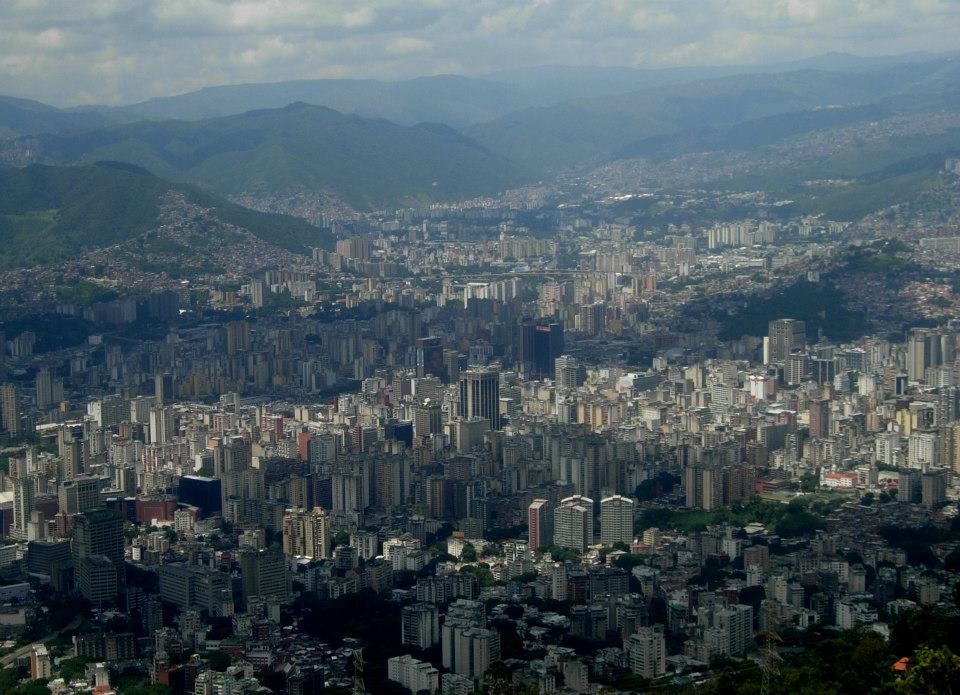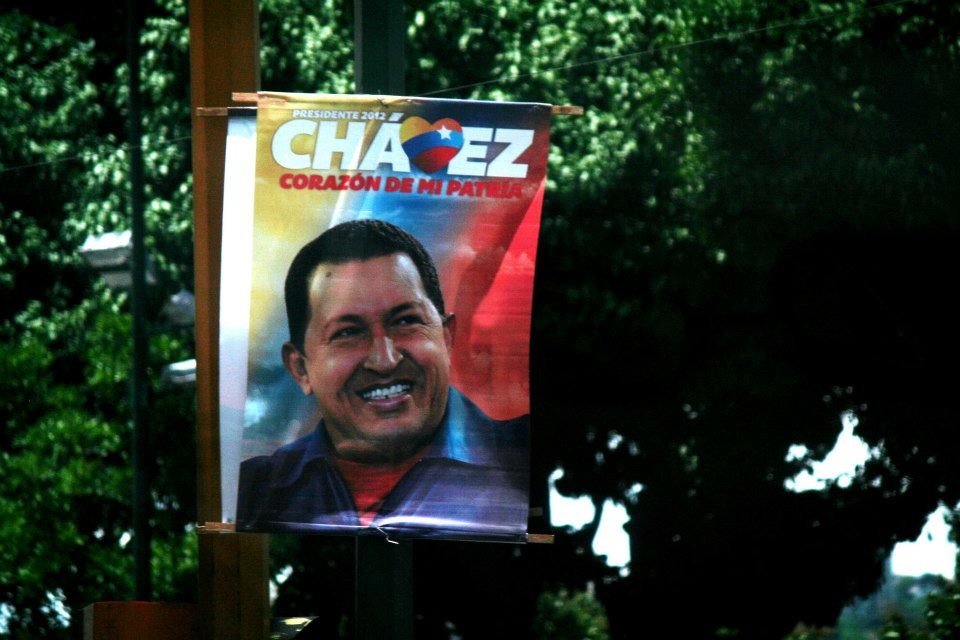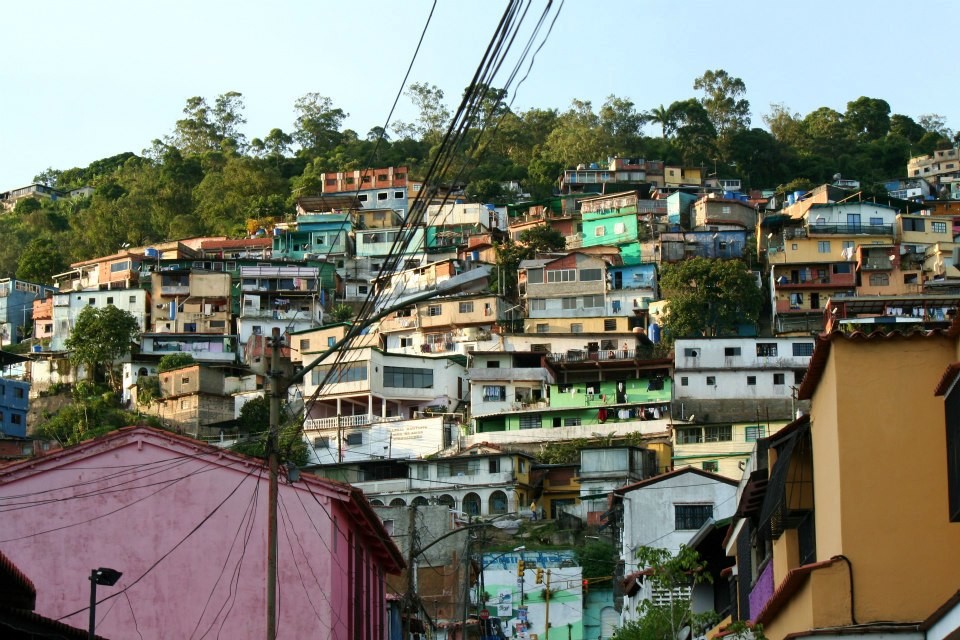Crossing the pond
There are trips that only happen once in life and for me, that was in 2013 when, for the first time in my whole life, I could travel across the Atlantic Ocean to go to another continent. For me, I was going to Venezuela - not a very likely destination for the majority of travellers, but having close family there who live in Caracas made things a lot easier for me and my family that travelled with me.
When going on a trip to a place which is so far away, the cultural shock can actually be quite big. From the climate to each one of the customs can really make a difference despite the fact that Venezuela is also a country which speaks the same language as us (Spanish). In regards to the language, you can also find surprises, since situations can arise where it's a little difficult to understand and to be understood by the locals.
The trip lasted 2 weeks in total and it would probably be too complicated and boring for me to explain the large majority of things that we did there. Furthermore, I didn't stay in one place for the whole time I was there, instead, we actually started in Caracas, we went to the Isla Margarita (Margarita Island) and then back to Caracas again... and that was how it went on for a while. A heap of planes and places and not always situations which are interesting to tell. Because of that, I'm going to focus on telling the main stories and surprising things which happen for the first time in a country which is outside of the European continent.
I went on this trip when I was only 16 years or so, so I can honestly say that I didn't enjoy it as much as I would be able to now - now that I'm older, I have more life experience and I know how to handle things better. However, as it was all so new for me, the vision which I have of everything is quite special since I noticed things which surprised me, but if I were to see the same things now, they wouldn't surprise me so much. Whatever the case may be, my age didn't cause any problems with enjoying things nor today with remembering the trip.
Arrival in Caracas - The airport
Normally, when you move around Europe, you realise that all the airports are practically the same and what's certain is that they are the same all over the world. Very little or even nothing was different with things like signs or direction signs. There was barely any difference with the duty free shops. However, the fact that we are able to travel around Europe with just an ID card from our country of residence which we have become used to when it comes to airport security and customs. These kinds of border controls are the first that you have to endure when you set foot in a country which isn't in the European Union and here, in South America, they are especially strict because of the drugs and everything else.
Although in first place, we didn't arrived directly to Caracas airport. From Madrid (Barajas airport), we went directly to Lisbon airport where we started the passport processes which are necessary to go to a Latin American country. I remember that this experience, even in a European country, is like something tiresome and chaotic.
In customs, once we had arrived on Venezuelan soil, everything flew past without any major problems, I remember it all went by quite quickly since there were no problems. Of course, on the return flight before getting on the plane, they divided us according to our last names to search us and inspect our hand luggage one by one. I wasn't trafficking anything, so there wasn't any problems then either, although the tension in the moment stays with you because it seems like there are people from the army who are in charge of these controls.
One of the first things that shocked me no sooner after leaving the plane was the humidity. I have been to very humid places around Europe, but they were nothing compared to the humidity in a tropical country. Even though I have always resisted excessive humidity until now, during those two weeks, I wasn't able to get used to this climatic shock.
It was the middle of August, it was hot but not excessively. What turned out to be really annoying was the humidity, which as I said, ends up being really shocking for a foreign person who lives their day to day life coexisting with barely any humidity in their city of origin.
Before, I had said that all the airports are practically the same, but the truth is that here, I noticed that one of the main things that was different and are usually not noticed are the welcome signs which each country has prepared. A lot of the time they even advertise the country.
So here, the advert was mainly for what I assume is an attempt to convince tourists that arrive in Venezuela that the country is prosperous in certain aspects. There were huge signs everywhere with information about schooling in the country, the unemployment and things of the same kind. Almost all of them accompanied by an image of the president at the time, Hugo Chávez (now dead, one of the most high-profile presidents in the history of South America in a country which today, is completely chaotic).
Something which was quite surprising and shocking it seems to me. Different opinions can be respected. It just seemed odd to me.
Arriving in Caracas - First steps outside
On leaving the airport, the family members who made this trip possible were waiting for us. We travelled as a family so we used a type of minibus which we had hired between all of us before arriving for a very reasonable price and it took us to the place where we were staying.
It's quite a long journey from the airport to the city of Caracas. During that journey, I could see new things which turned out to be surprising to the eyes of someone who had never left Europe in their life. The precarious settlements looked like the favelas in Río de Janeiro; it was the first true contact which we had on the journey since we saw them in the distance. They are places which don't really convince you to get close to them because the muggings and crimes are something which unfortunately are quite common in day-to-day life in Caracas as it is one of the cities with the highest level of crimes in the world.

Further in, at the entrance of a tunnel, we were stopped by some armed military guys at a checkpoint which I suppose was routine. Once more, we had no problems (just like the rest of the journey), but it didn't stop being surprising when we were stopped by armed guards in the middle of the street. No longer after leaving, you can see why Venezuela is one of the most dangerous countries in the world as I said before, although currently, it seems that it's not even possible to solve all these problems which have gripped this beautiful country.
When we arrived in the city, we went around the streets until we came to a house which was in a small residential area. A residential area which was protected by an armed guard who would allow access. This is a something constant in the majority of places in Venezuela, maximum security, something which we aren't too used to in Europe (at least for now).
Jet-lag, climate and the rest
That same night, I was able to experience the effects of jet-lag. I have never travelled to a place in which the time zone is so different, so my body immediately felt strange that it was the early hours of the morning and I had no wish to sleep. In the end, after some difficulties, you end up sleeping. It's not much and it's not a good sleep to be honest, but that's something which doesn't take long for your body to adjust to. The first couple of night weren't so great but finally you get used to it. I suppose that it would depend on the person, but for me that's how it was. Perhaps the worst thing was the headache on the second day which was perhaps due to the lack of sleep, but oh well, it's nothing that would prevent you from living your life as if nothing had happened.
That same night, it kind of shocked me to see how the sun rises in a fairly tropical country. The journey of the stars is very different at these latitudes compared to what we're used to in Europe. Furthermore, it's possible to see constellations which you can only see from said latitudes.
I noticed how dusk hardly existed. Well, it did exist, but there was no noticeable transition from day to night. Here, the night sky just turns completely black in a matter of minutes, practically without you even noticing, in a way which at most, by 8:30pm, it's already night and completely dark. It's a minor fact, but not being used to it meant that it really surprised me.
Similarly, during the day, the position of the sun changes a lot, especially in the hours around midday where the sun is in a position which is almost completely in the middle of the sky. What does this mean? That the sun is positioned just above your head and the best way to check if that's the position of the sun is to look on the floor as you're shadow almost won't show up on the floor. It's advisable to wear a hat of some kind at these latitudes if you don't want to end the day with a terrible headache like me.
The rain is also something surprising here; it seems like it's unpredictable. It just simply starts raining. Everything suddenly becomes dark and down comes torrential rain. Luckily, this rain doesn't last any longer than a few minutes, but it really comes down strong; it's as if it's going to flood the whole city. But no - it simply gives the country an intense green colour which can be seen in the vegetation which appears wherever you go.
This is something which I wouldn't be able to cope with in my day-to-day life, or at least it would be difficult for me to adjust to it because I like when it rains but in a more constant form. I really don't like when it rains intermittently nor when it rains intensely in short periods of time.

Visiting Caracas
The visit to the city of Caracas was unusual for me because we did it on board the minibus which took us from the airport to the house. Sadly, it tuns out it wasn't too safe to visit the bigger part of the city of Caracas as a tourist on foot. In this way, we went on a huge journey in the minibus around the whole city visiting the main places in Caracas, of course stopping in the most famous places or the places which deserved a thorough visit.
Taking photos was very difficult because taking them with a window in between the camera and whatever I wanted to take a picture of, and the fact that I was in a moving bus. Even so, I managed to take some photos which more or less deserved to be shown.
A meaningful part of the journey was that those days I was there coincided with the electoral campaign for the Venezuelan presidential elections, so there were signs and propaganda cars going around the whole city. It's not everyday that you can say that you have experienced Venezuela during an electoral campaign.

Honestly, although I wasn't able to enjoy it to the max as we couldn't walk around the streets, the trip was quite enriching and I was able to get a general idea of what the city of Caracas is like. The fact that we barely touched the pavements with our feet in the centre of the city gives the impression that Caracas is something distant and strange; going there is more or less like you're on a safari. But of course, it's better to be safe than sorry.
Later, almost at the time when it was getting dark, we visited the flat where the family members were staying and living there and they welcomed us into their home. The flat was in a privileged area which offered an incredible panoramic of the whole city of Caracas at night. You could clearly see how the whole city is positioned between the mountains, something fairly common in a lot of cities in South America. Some incredible views.
The negative note was that that night there was a power cut in the whole neighbourhood, something which is quite common in Caracas. Although this allowed us to witness one of the realities which is going on in the country - the spontaneous protests of the people in the neighbourhood, it was sort of like 'a demonstration' to express their discontent. This, apparently, was something fairly common each week in the neighbourhood and it's something that seems like it happens practically over the whole city of Caracas; it's something which gives you an idea of the situation which is being lived right now in the city today.
The last thing that we did in the city of Caracas was walk (around an area which they had told us was safe) towards a shop full of artisanal products. This was the only time that we were able to walk around freely the streets of Caracas, although it wasn't really a central area. It was more of a residential neighbourhood full of middle-class people where there was numerous shops designed for tourists.

The shop was enormous and a labyrinth. I had never been in a shop with such chaotic aisles, it seemed that there was no end. The products which they sold were very varied. All of them artisanal, like a "atrapadedos" (finger-trap) made from wicker or decorative objects carved from wood.
The journey back - we did it in a particular car, when it had started getting a bit dark, it started becoming a little dangerous considering that we were practically in the middle of the capital.
Photo gallery
Content available in other languages
- Español: Experiencia cruzando el charco
- Italiano: Esperienza oltreoceano
Want to have your own Erasmus blog?
If you are experiencing living abroad, you're an avid traveller or want to promote the city where you live... create your own blog and share your adventures!
I want to create my Erasmus blog! →



















Comments (0 comments)